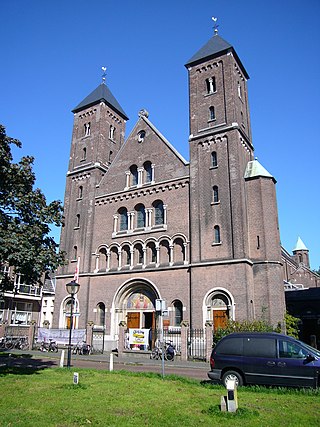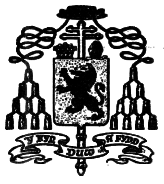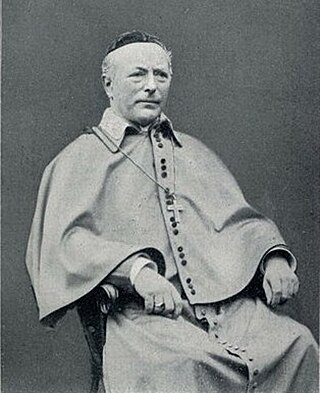
The Anglican Communion is the third largest Christian communion after the Roman Catholic and Eastern Orthodox churches. Formally founded in 1867 in London, the communion has more than 85 million members within the Church of England and other autocephalous national and regional churches in full communion. The traditional origins of Anglican doctrine are summarised in the Thirty-nine Articles (1571) and The Books of Homilies. The archbishop of Canterbury in England acts as a focus of unity, recognised as primus inter pares, but does not exercise authority in Anglican provinces outside of the Church of England. Most, but not all, member churches of the communion are the historic national or regional Anglican churches.
The terms Old Catholic Church, Old Catholics, Old-Catholic churches, or Old Catholic movement, designate "any of the groups of Western Christians who believe themselves to maintain in complete loyalty the doctrine and traditions of the undivided church but who separated from the see of Rome after the First Vatican council of 1869–70".

The Old Catholic Church of the Netherlands, sometimes Jansenist Church of Holland, is an Old Catholic jurisdiction originating from the Archdiocese of Utrecht (695–1580). The Old Catholic Church of the Netherlands is the mother church of the Old Catholic Union of Utrecht.
The Free Protestant Episcopal Church (FPEC), later named The Anglican Free Communion and now entitled the Episcopal Free Communion, was formed in England on 2 November 1897 from the merger of three smaller churches. Others were to join later.
Independent Catholicism is an independent sacramental movement of clergy and laity who self-identify as Catholic and form "micro-churches claiming apostolic succession and valid sacraments", in spite of not being affiliated to the historic Catholic church, the Roman Catholic church. The term "Independent Catholic" derives from the fact that "these denominations affirm both their belonging to the Catholic tradition as well as their independence from Rome".
Apostolicae curae is the title of an apostolic letter, issued in 1896 by Pope Leo XIII, declaring all Anglican ordinations to be "absolutely null and utterly void". The Anglican Communion made no official reply, but the archbishops of Canterbury and York of the Church of England published a response known by its Latin title Saepius officio in 1897.

The Union of Utrecht of the Old Catholic Churches, most commonly referred to by the short form Union of Utrecht (UU), is a federation of Old Catholic Churches, nationally organized from schisms which rejected Roman Catholic doctrines of the First Vatican Council in 1870; its member churches are not in communion with the Roman Catholic Church.

Arnold Harris Mathew, self-styled de jure 4th Earl Landaff of Thomastown, was the founder and first bishop of the Old Roman Catholic Church in the United Kingdom and a noted author on ecclesiastical subjects.

Gerardus Gul served as the seventeenth Archbishop of Utrecht from 1892 to 1920. He is known for his role in assisting the persons who would later found the Polish National Catholic Church in the United States, as well as for consecrating Arnold Harris Mathew, the founder and first bishop of the Old Catholic Church in Great Britain.

The Old Catholic Archdiocese of Utrecht is an archdiocese within the Old Catholic Church of the Netherlands which split from the Archdiocese of Utrecht officially in 1723 because of the illicit consecration of Cornelius van Steenoven to the episcopate.
Cornelius Johannes Barchman Wuytiers served as the Old Catholic Archbishop of Utrecht from 1725 to 1733.

Petrus Johannes Meindaerts served as the tenth Archbishop of Utrecht from 1739 to 1767. After the death of his consecrator, Bishop Dominique Marie Varlet, Meindaerts consecrated other bishops, such that all later Old Catholic bishops derive their apostolic succession from him, as the bishops before him died before they could consecrate others.

Walter Michael van Nieuwenhuisen served as the eleventh Archbishop of Utrecht from 1768 to 1797.
Johannes Jacobus van Rhijn served as the twelfth Archbishop of Utrecht from 1797 to 1808.
Willibrord van Os served as the thirteenth Archbishop of Utrecht from 1814 to 1825.
Johannes van Santen served as the fourteenth Archbishop of Utrecht from 1825 to 1858. He was part of the last attempt of the Church of Utrecht to reconcile with the Roman Catholic Church at that time.
Henricus Loos served as the fifteenth Archbishop of Utrecht from 1858 to 1873. Together with Bishop Hermann Heykamp of Deventer, Loos is known as one of only two bishops whose orders were recognized by the Roman Catholic Church, but who were not invited to the First Vatican Council. Loos served as Archbishop of Utrecht during the first two Old Catholic Congresses in Munich in 1871 and in Cologne in 1872.

Johannes Heykamp served as the sixteenth Archbishop of Utrecht from 1875 to 1892. A learned theologian, Heykamp is most remembered for summoning the conference that led to the Declaration of Utrecht.

Andreas Rinkel was a Dutch priest who served as the nineteenth Archbishop of Utrecht from 1937 to 1970.







